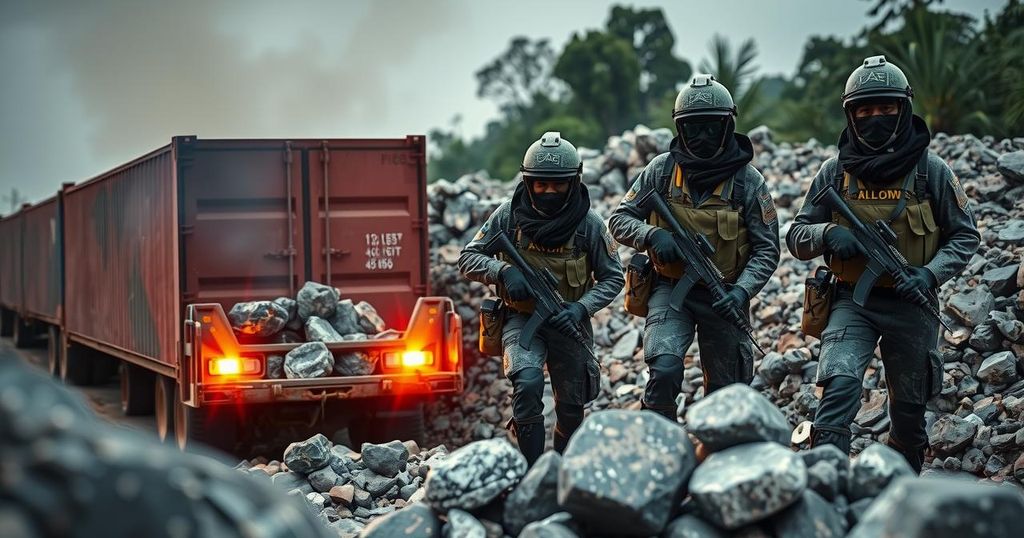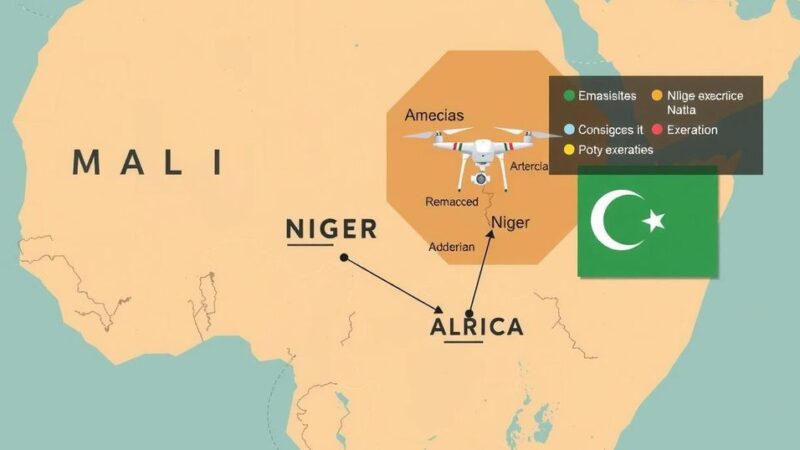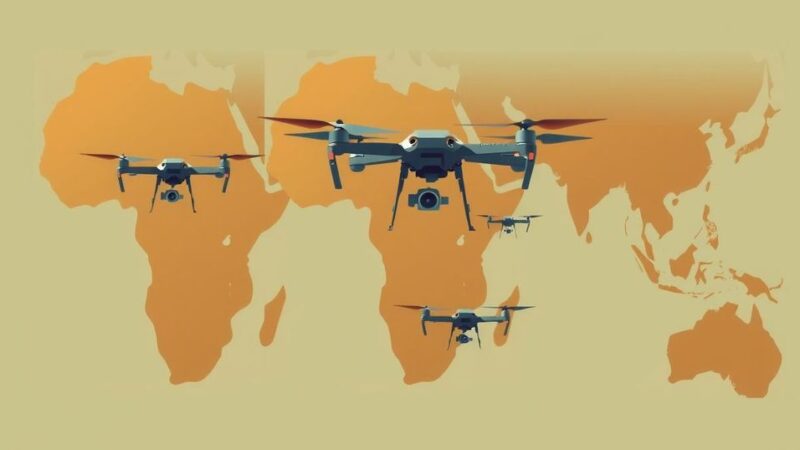U.N. experts reported that rebels in eastern Congo illicitly exported 150 metric tons of coltan to Rwanda, contaminating the mineral supply chain. The M23 rebel group, allegedly supported by Rwanda, capitalized on control over the Rubaya area to monopolize mineral exports. This has raised concerns among technology manufacturers regarding conflict minerals in their supply chains.
A recent report by U.N. experts has revealed that rebel factions in eastern Democratic Republic of Congo illicitly exported at least 150 metric tons of coltan to Rwanda in the previous year. This act has resulted in a significant disruption of the mineral supply chain within the Great Lakes Region, marking a troubling historic precedent. The situation escalated following the M23 rebel group’s seizure of the Rubaya territory, known for its substantial coltan deposits, during conflicts that erupted last April. Their uncontrolled access to transport routes facilitated the blending of Rubaya’s minerals with those sourced from Rwanda, exacerbating issues of conflict-related mineral sourcing for global technology manufacturers.
The Democratic Republic of Congo has long been plagued by conflicts fueled by the mineral wealth that exists in its territory. The region is rich in valuable resources, including coltan, which is essential for the production of modern electronics. However, the exploitation of these resources is often associated with violence and the funding of armed groups. The M23 movement, backed by purported external forces from Rwanda, has engaged in activities that undermine lawful mining activities and have contributed to significant humanitarian crises in the area. In recent years, global companies have faced increasing pressure to ensure that their supply chains are free from conflict minerals sourced from such regions.
The actions of the M23 rebels in manipulating the coltan supply chain not only represent a grave violation of international standards regarding conflict minerals but also pose substantial risks for technology companies that must navigate these complexities to maintain ethical sourcing practices. The U.N. report underscores an urgent need for greater oversight and action to protect the integrity of mineral supply chains in conflict-affected areas. Furthermore, it raises critical awareness regarding the implications of utilizing minerals that fuel ongoing conflicts, emphasizing the necessity for companies to uphold responsible sourcing initiatives.
Original Source: www.hindustantimes.com






